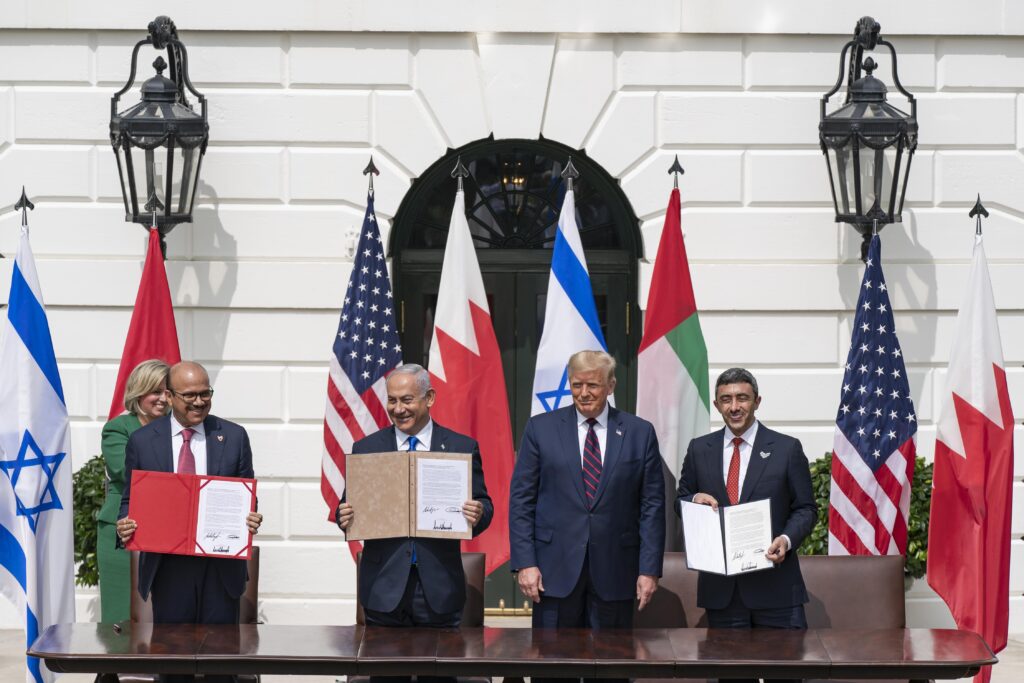The Abraham Accords have marked a significant turning point in Middle Eastern diplomacy, fostering unprecedented normalization between Israel and several Arab nations. As the region continues to evolve, experts and policymakers are now urging an expansion of these landmark agreements to include countries beyond the initial signatories. In particular, attention is turning to Azerbaijan, a strategically positioned nation with growing ties to Israel and the West, which could serve as a gateway for broader regional cooperation. This opinion piece explores the potential benefits and challenges of extending the Abraham Accords to Azerbaijan and other countries, highlighting the implications for peace, security, and economic development across Eurasia.
Expanding the Abraham Accords to Strengthen Regional Stability in the South Caucasus
Integrating Azerbaijan into a broader framework inspired by the Abraham Accords could act as a pivotal step toward fostering lasting peace and economic cooperation in the South Caucasus. This approach would not only help de-escalate long-standing conflicts but also encourage collaboration on energy, trade, and infrastructure. By leveraging Azerbaijan’s strategic position, regional players can create a web of alliances that strengthens political stability and opens new markets, benefiting both the Caucasus and its neighbors.
Key opportunities of expanding this framework include:
- Enhanced security coordination to deter external aggression
- Joint investment in renewable energy projects across borders
- Development of transportation corridors linking Europe and Asia
- Increased cultural and diplomatic exchanges to build trust
| Country | Potential Benefit | Strategic Interest |
|---|---|---|
| Azerbaijan | Economic diversification | Energy corridors |
| Armenia | Security guarantees | Regional integration |
| Georgia | Trade expansion | Transport hubs |
Leveraging Azerbaijan’s Strategic Position to Foster Economic and Diplomatic Ties
Azerbaijan’s geographic position as a bridge between Europe and Asia offers a unique platform to enhance both economic and diplomatic engagements. By capitalizing on its proximity to key regional markets and energy corridors, Azerbaijan can serve as a pivotal gateway for expanding trade networks and fostering multilateral cooperation. Recent developments in infrastructure, including the modernization of transport routes and the Southern Gas Corridor, illustrate the nation’s potential to become a critical hub for energy and logistics, especially when aligned with broader regional peace initiatives.
To fully unlock this potential, it is essential to pursue partnerships that extend beyond traditional allies, incorporating new actors through initiatives that encourage mutual economic growth and stability. Key strategies include:
- Enhancing cross-border trade facilitation with neighboring countries
- Promoting joint investments in energy and technology sectors
- Leveraging diplomatic channels to resolve regional tensions
- Building platforms for cultural and educational exchanges to strengthen ties
These approaches not only foster a safer geopolitical environment but also create sustainable economic benefits that ripple across the region.
| Sector | Opportunity | Potential Partners | |||||||||||||
|---|---|---|---|---|---|---|---|---|---|---|---|---|---|---|---|
| Energy | Export diversification, pipeline expansion | Israel, UAE, EU nations | |||||||||||||
| Logistics | Rail and port connectivity | Turkey, Georgia, Azerbaijan | |||||||||||||
| Policy Recommendations for Broadening the Abraham Accords Framework Beyond the Middle East
To effectively extend the Abraham Accords beyond the Middle East, policymakers must prioritize inclusive diplomacy that embraces emerging regional players like Azerbaijan. Establishing multilateral summit mechanisms will facilitate dialogue that transcends bilateral agreements, allowing diverse stakeholders to address shared security concerns, economic collaboration, and cultural exchange. Moreover, fostering partnerships in technology, energy, and trade sectors can act as concrete incentives, ensuring durable peace and broader regional integration. Specific initiatives should include:
In designing frameworks for expansion, it is essential to recognize varying geopolitical sensitivities and tailor approaches accordingly. A flexible, phased approach that allows incremental engagement—beginning with low-stakes sectors like tourism and environmental cooperation—can cultivate confidence gradually. Below is a strategic roadmap outlining key policy steps and potential impacts:
Concluding RemarksAs discussions around broadening the scope of the Abraham Accords continue, incorporating nations like Azerbaijan could mark a significant step toward reshaping regional alliances and fostering greater stability in the Caucasus and beyond. While challenges remain, the potential benefits of expanded diplomatic engagement underscore the importance of sustained dialogue and strategic vision. The coming months will be critical in determining whether this ambitious initiative can translate into lasting peace and cooperation across new frontiers. |
